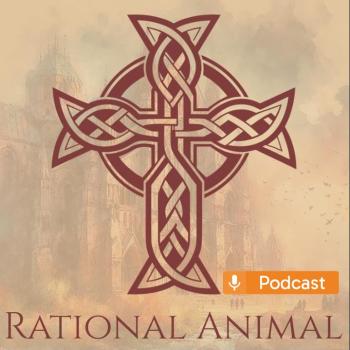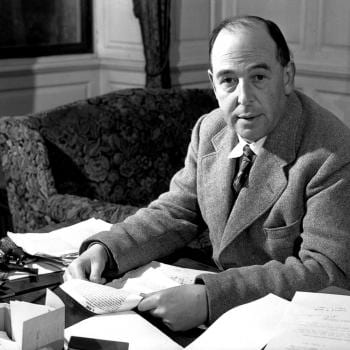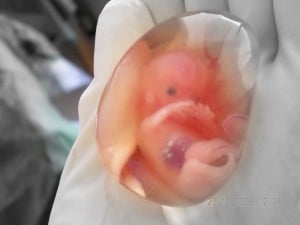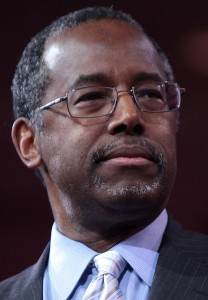![By Bryancalabro (Own work) [CC BY-SA 3.0 (http://creativecommons.org/licenses/by-sa/3.0)], via Wikimedia Commons](https://wp-media.patheos.com/blogs/sites/148/2015/07/Opened-Birth-Control-Pills-300x195.jpg)
A Philadelphia physician who was fired from her job for refusing to prescribe contraception or the morning-after pill, citing her Catholic faith, has won her case in the Eastern District Court of Pennsylvania. The victory ensures that the conscience rights of other medical professionals will also be respected.
For thirty-five years, Dr. Doris Fernandes worked at Philadelphia’s District Health Center. But the board-certified pediatrician was fired in 2013, after refusing to prescribe contraceptives like Depo-Provera and RU-486, the morning-after pill, to the young women who sought care.
For most of her lengthy medical career, Dr. Fernandes simply said “No, I don’t do that” when asked about contraception. The patient would then simply transfer to another physician at the clinic. But in 2013, Dr. Victor Igbokidi, the medical director of pediatric and adolescent services for the city’s Department of Public Health, ordered Dr. Fernandes to begin prescribing contraceptives. Dr. Fernandes responded in writing to the new demand, saying,
“This letter is to let you know that I cannot participate, for participation is strictly forbidden by my religious beliefs and against my conscience.”
Dr. Igbokidi was unsympathetic, and Dr. Fernandes was terminated.
The 83-year-old Dr. Fernandes sued, claiming religious discrimination under Title VII, the First Amendment, and various state laws. She was assisted in her case by the American Center for Law and Justice. The ACLJ explained on its website:
Under the terms of the settlement, the City agrees to adopt a policy permitting any of its medical providers who have religious objections to participating in certain forms of care to redirect patients – short of formal referral – to other appropriate sources. This is consistent with the position endorsed by the American Medical Association in its policy statement, Physician Exercise of Conscience: “When a deeply held, well-considered personal belief leads a physician also to decline to refer, the physician should offer impartial guidance to patients about how to inform themselves regarding access to desired services.”
This resolution is a positive outcome for all involved. It respects to the fullest extent possible the religious liberty of doctors and other medical providers who have religious objections to certain forms of medical care. In a religiously diverse society, highly qualified practitioners may, from time to time, face situations in which their beliefs conflict with requested services. The resolution of this case demonstrates that such practitioners’ beliefs can be accommodated without compromising overall medical care.
* * * * *
Archbishop Charles J. Chaput, archbishop of Dr. Fernandes’ home diocese of Philadelphia, understands well the pressure exerted against religious belief in public life. In addition to his role as a Catholic bishop for over 25 years, the archbishop served for three years as a commissioner with the United States Commission on International Religious Freedom.
In an article published by the Witherspoon Institute in March 2013, Archbishop Chaput wrote,
Simply put, religious freedom is a fundamental natural right and first among our civil liberties. And I believe this fact is borne out by the priority protection it specifically enjoys, along with freedom of expression, in the Constitution’s First Amendment.
Archbishop Chaput’s thoughtful and well-reasoned article made four points about religious liberty:
- Religious faith and practice are cornerstones of the American experience.
- Freedom of religion is more than freedom of worship.
- Threats against religious freedom in our country are not imaginary or overstated. They’re happening right now. They’re immediate, serious, and real.
- From the beginning, believers—alone and in communities—have shaped American history simply by trying to live their faith in the world. We need to realize that America’s founding documents assume an implicitly religious anthropology—an idea of human nature, nature’s God, and natural rights—that many of our leaders no longer really share.
* * * * *
Across America, religious liberty and our First Amendment rights are under attack.
In Philadelphia, the news this time is good.
The news is not so good in Colorado, where this week an appeals court ruled against Christian baker Jack Phillips, who refused to bake a cake for a same-sex wedding on the grounds that it would violate his Christian beliefs regarding what the Bible says about marriage.
Catholics and other Christians must stand firm, consistently and energetically defending their Constitutional rights in the court of law and in the court of public opinion. There will be wins and losses, as judges and juries across the country employ their own sometimes ersatz rationale for decisions which will ultimately reach the U.S. Supreme Court.
Joshua 1:9 reminds us that God will always be with us:
Have I not commanded you? Be strong and courageous! Do not tremble or be dismayed, for the Lord your God is with you wherever you go.”















